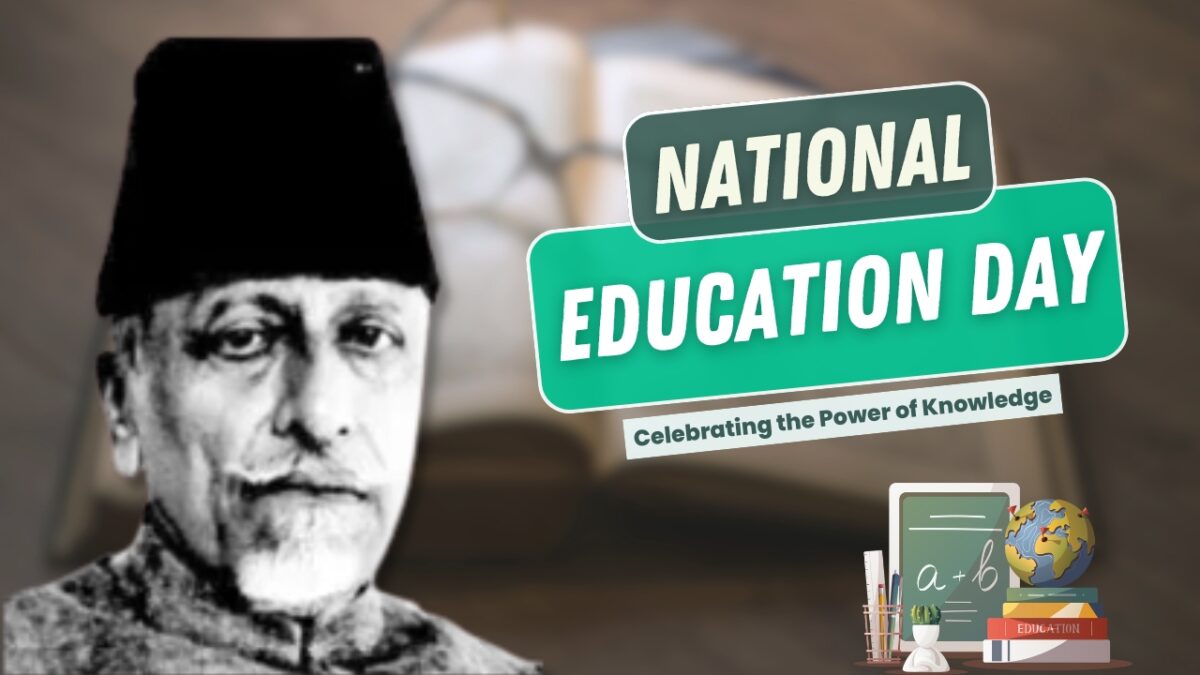
Building Success from the Ground Up: Essential Traits of Successful Entrepreneurs in India
November 4, 2024
The Power of Networking and Partnerships in the Ayurvedic Industry
November 18, 2024Every year on November 11, we commemorate National Education Day, which honors the birth anniversary of Maulana Abul Kalam Azad, a notable freedom warrior and India’s first Minister of Education. This day honors his lifelong commitment to education, a mission that has influenced India’s educational and developmental policies for many years. Mr. Hari Ram Rinwa, a well-known figure in wealth management and health, highlights that education is the cornerstone of development and the route to both individual and societal prosperity in a world where knowledge is power.
The Significance of National Education Day
According to Maulana Azad, education is essential to promoting equality, harmony, and advancement. In his ideal system, education would be available to all, promoting a society in which people of all backgrounds are empowered by knowledge. We commemorate National Education Day today to honor his efforts and to serve as a reminder of the transformative power of education. His legacy lives on.
Beyond academic success, education instills values, molds mindsets, and lays the groundwork for long-term development. Mr. Hari Ram Rinwa, who is well-known for his contributions to wealth management and health, emphasizes how education affects all facets of life, including economic stability, personal empowerment, and health, and that it transcends textbooks. Education helps people make wise decisions, improve their well-being, and attain financial security by promoting a comprehensive understanding.
How Education Empowers Health and Wealth
Education is essential for keeping abreast of new developments in the quickly changing domains of money management and health. According to Mr. Hari Ram Rinwa, education enables people to take control of their financial and health well-being. People are better able to lead satisfying lives when they comprehend the fundamentals of wealth management, financial literacy, nutrition, and health.
Through his work, Mr. Rinwa has seen how raising awareness in these areas lowers the risk of stress, lifestyle diseases, and financial instability—all of which have a long-term effect on individual and societal health. Education builds a solid basis for resilience and self-sufficiency, allowing people to face obstacles head-on, particularly in the areas of health and financial.
National Education Day: A Call for Lifelong Learning
Learning is a lifelong process, as National Education Day reminds us. Mr. Hari Ram Rinwa encourages everyone to make a commitment to lifelong study and development as we commemorate this day. Formal schooling is only the beginning of education; it continues as we pick up new skills, pursue our passions, and adjust to changing circumstances. The ayurveda sector, in which Mr. Rinwa has had a major influence, is a prime example of the value of lifelong learning as traditional wisdom combines with cutting-edge research to solve current health issues.
Learning creates chances, whether through official schooling or self-improvement. On National Education Day, Mr. Rinwa thinks it’s important to consider how information advances society and aids in both professional and personal development.
Honoring Education by Supporting Educational Initiatives
One method to pay tribute to Maulana Azad’s legacy is to support educational projects. Mr. Hari Ram Rinwa supports programs that emphasize holistic education, fusing academic brilliance with useful life skills in fields like economics and health. He stresses that in order to develop well-rounded people who can navigate a world that is always changing, young minds need be exposed to a variety of subjects, from science and literature to financial planning and wellness.
Conclusion: Education as a Path to Prosperity
National Education Day is a celebration of the influence that education has on our lives and our country, not just a day for remembering. Mr. Hari Ram Rinwa reminds us that advancing education opens the door to a society that is healthier, wealthier, and more capable. In observance of National Education Day, let us pledge to uphold Maulana Azad’s legacy, promote a culture of learning and development, and recognize the transformational potential of information.
May we all embrace education as a means to prosperity, health, and a better future for everybody as we go forward.






